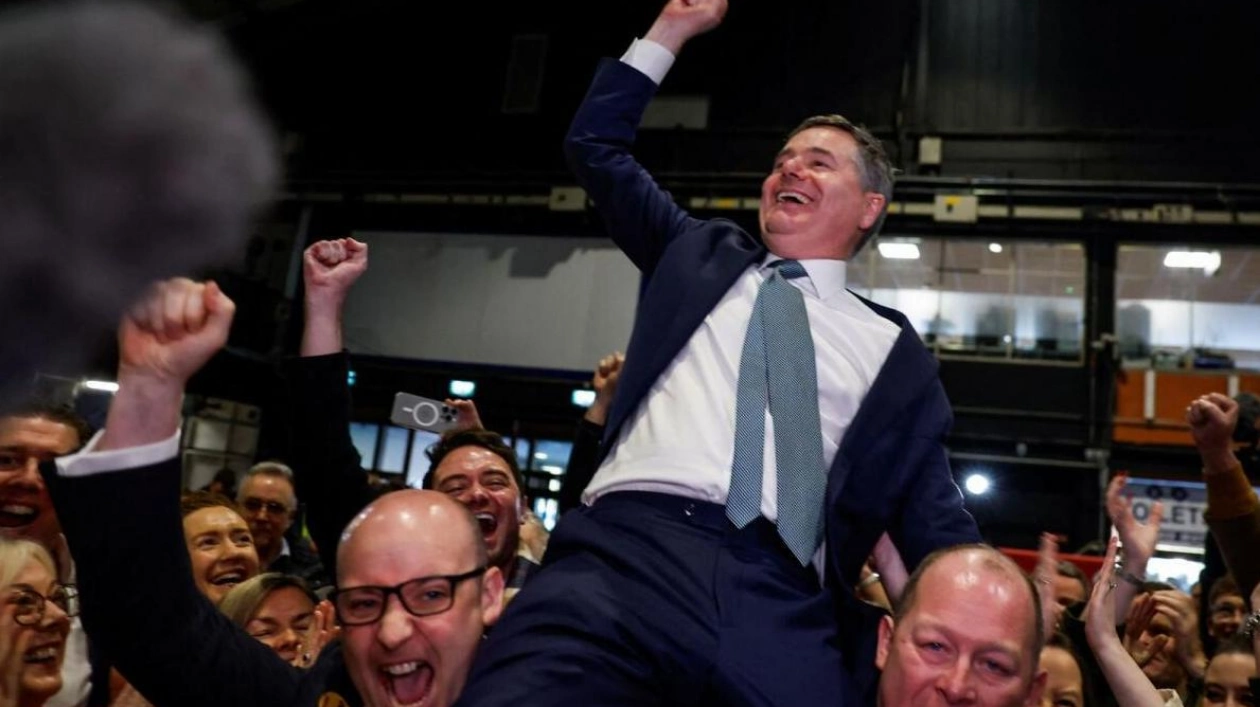Fine Gael candidate and Ireland's Minister for Public Expenditure and Reform, Paschal Donohoe, reacts after being elected following Ireland's general election in Dublin, Ireland, on December 1, 2024. – Reuters
Ireland's two major centre-right parties are poised to start their search for a coalition partner this week, as Friday's election results suggest they may fall short of the 88 seats required to govern. This decision will significantly influence their policy agenda. Prime Minister Simon Harris' Fine Gael and coalition partner Fianna Fail defied a global trend of incumbent rejection, securing 20.8% and 21.9% of the vote respectively, similar to their 2020 performance. With their outgoing junior coalition partner, the Greens, expected to retain only one seat, the choice lies between smaller left-leaning parties or more conservative independent lawmakers. The final seats are anticipated to be filled on Monday.
"There is definitely potential for this additional partner to significantly shape the ideological direction," said Theresa Reidy, senior lecturer in politics at University College Cork. Fine Gael and Fianna Fail have ruled out a deal with the main opposition party, Sinn Fein, whose vote dropped to 19.0% from 24.5% in 2020 and 35% in polls a year ago. Harris called the election shortly after a 10.5 billion euro ($11 billion) budget, but faces pressure to address public discontent over the outgoing government's failure to improve public services despite healthy public finances.
Senior ministers from Fine Gael and Fianna Fail anticipate that talks to form a new government will take at least several weeks. They aim to finalize a deal before the inauguration of U.S. President-elect Donald Trump on January 20, though this is not a strict deadline. Trump's plans to cut corporate taxes and impose tariffs pose a significant threat to Ireland's economy, heavily reliant on U.S. tech and pharmaceutical multinationals.
"Ideally, if we can form a government before Trump's inauguration, that would be positive, but we need a government that can endure," said Finance Minister Jack Chambers of Fianna Fail. Fine Gael and Fianna Fail have previously formed stable governments with independent support and have also governed with either Labour or the Social Democrats. While 88 votes are needed to pass legislation and approve ministers, around 94 are required for a comfortable majority to last a full five-year term, according to former Prime Minister Bertie Ahern.
"The reality is they have numerous options," giving them substantial bargaining power, Ahern noted.
Source link: https://www.khaleejtimes.com






